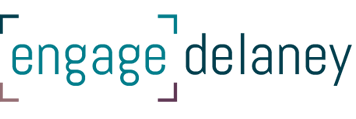Remote work, employee engagement and our new normal
by Jessica Delaney, Principal, Engagement + Strategic Communications
I recently had an opportunity to support a client with internal engagement. While we often engage employees, it’s usually part of a larger engagement, so what made this unique was that it was entirely employee focussed, looking to better understand their needs and preferences for work once public health orders are removed. Much of what I heard, I believe, could translate to many other work places, and I wanted to share three big insights that might help you and your teams as we move into fall and, hopefully, start to move toward a new normal with the pandemic being further behind us.
- Working remotely is about trust and respect: The ability to work from home, for many employees, translates to their employer trusting them and respecting that they are more than an employee. For example, being able to work from home when kids are sick means they are trusted to do the work, and they are respected in that they are recognized as also having the role of a parent. For the employer, it also means the work continues even when the staff member is not in the office.Tip: think ahead to check-ins and different ways accountability can be maintained while working remotely.
- Working remotely is not an all or nothing proposition: I heard that for some jobs and in different instances, you have to be in the office, onsite and meeting other team members. Working remotely is likely not going to be an all or nothing proposition. Part of the “trust” relationship is recognizing that when you are needed in the office, you will be there… with bells on and a smile. This is part of being a professional and applying good judgement to when face-to-face is best. In speaking with a colleague and friend, they shared how important staying connected to the team is and that it requires effort, commitment and intention. Checking in with colleagues and being a friend at work is still important, maybe even more important, when working remotely so there needs to be a plan in place to build and maintain those connections. Part of that plan might mean an every other week in-person staff meeting, meeting for a lunch walk-break, planning and participating in social activities and being available at a more personal level. Tip: think about how you and your team can stay connected in a hybrid of in-person and virtual work.
- Working remotely can enable better wellness: I heard a lot about how working remotely has helped staff be more present for their kids and partners. Not having the morning routine of preparing lunch, getting ready for work and the commute means there is an hour or more saved every day. Staff used this hour to bring their kids to school, workout, or get to work earlier. For many, saving time, particularly in the morning, provided the first sense of “work-life-balance” in their careers and they felt they were more productive at work. In fact, many of those we engaged and have anecdotally spoken with, said they would take a reduction in salary or benefits if they could have the flexibility to work remotely. Not having the daily commute has helped employees save on gas money, buying fast-food lunches, and parking, but more than financially, it has allowed them the space to build a more sustainable routine. Tip: think about how you will support team members in their own wellness regardless of whether they work in-person, virtually or a hybrid.
While doing this engagement, wildfires raged across the Interior of B.C. As an asthmatic, I found that just breathing inside my home was increasingly challenging. So, with no previous plans to go back East, we hastily made plans and flew to Ottawa and then drove to Quebec to my family cottage. I appreciate there is a lot of privilege in being able to do that while at the same time we were leaving, people on the other side of the lake and across the Interior were staying to protect their homes. Having the flexibility to either get out, or stay home to protect your home, are both necessary.
As work starts to return to “normal”, I encourage all employers and team leaders to think about flexibility and how it can play an important role in supporting current staff and recruiting future staff. Stay well, Jessica




